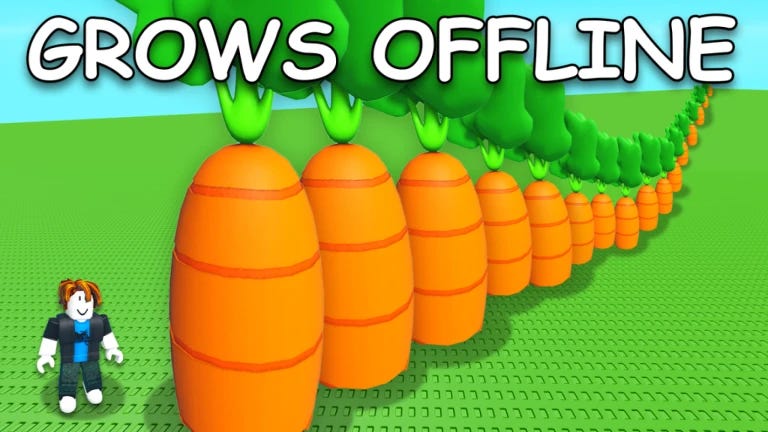Listen now on Apple, Spotify or YouTube
In This Edition
- Fortnite vs Roblox
- Monetization for Fortnite creators
- Epic Store vs Steam
- The AI and Metaverse future
- Download a free report ahead of The Game Business Live
It’s a bumper Newsletter and Show today. So how about we just skip the intro for this one eh? Enjoy.
The Big Interview: Epic Games CEO Tim Sweeney
During Epic’s State of Unreal event, the firm ran a demo where an AI non-playable character tried to convince the gamer to press a button.
At the end of the demo, the gamer pressed the button, the room went black, and Epic Games founder and CEO Tim Sweeney appeared on the stage.
“Well, they pressed the AI button,” said Sweeney. “It might have been a bad idea, but in truth there’s no un-pressing that button.”
AI tools dominated Epic’s event this week, but it’s really just one of the major talking points that Epic is at the heart of.
The rise of user-generated content platforms, the opening up of the app stores, the on-going negative impact of live-service games on player time… Epic is involved in all of those stories in a major way.
Shortly after Sweeney stepped off stage, I had the chance to chat with him about all of those subjects. You can catch the full interview in our Show above, or simply enjoy our key takeaways below.
Epic will not train AI on data without permission
Tim Sweeney believes AI will improve productivity in games, help accelerate 3D art creation, and enable infinite conversation possibilities with non-playable characters.
But what about the downsides and threats?
“I think there's a lot that could go wrong in general,” he admits. “But in the areas where we're adopting AI, both in our tool set and in our games, I think they're just positive productivity improvers for developers.
“Some of the AI companies jumped the gun and used data they didn’t get permission to use from the creators of the data. As we go into AI systems ourselves, we're purely using data that we have the rights to use. Working with the originators of the data to make sure that they're okay with what we're doing and how we're doing it.”
Fortnite and Roblox are fundamentally very different
Epic was proudly touting the success of Unreal Editor for Fortnite during its event, but we wanted to ask Sweeney for his perspective on the success of its chief competitor, Roblox. The user-generated game platform is delivering enormous numbers, and one game in Roblox – Grow a Garden – exceeded 11 million concurrent players last week.
“They’re really different games with different audiences at the moment,” Sweeney explains. “Roblox is predominantly played by young children. Fortnight is predominantly played by teenagers and 20-something. And the expectations of those two audiences are really quite different. Fortnite gamers generally expect games with identifiable gameplay and generally high production values. Roblox players seem much more accepting of lower levels of graphical fidelity and games that aren't as polished.
“There are two massive audiences here. You have Fortnite with 100 million monthly active users at it's a recent peak and Roblox with its 350 million monthly active users at its recent peak. With the exception at the one astonishing success In Roblox that came lately, mostly the games are aiming for a specific audience, which is a group of players who really favor that sort of experience. Both places provide a massive audience, as large as any single console platform audience, and they provide awesome opportunities for creators.”
“Fortnite gamers generally expect high production values. Roblox players seem more accepting of games that aren't as polished”
Epic won’t add more monetization options for Fortnite creators
One of the chief complaints we’ve heard from developers building games in Fortnite, is around how they make money. Players spend money on items and cosmetics in the Fortnite Item Shop, and this revenue is then shared with developers based on player engagement within their experience.
The developers we’ve spoken to are eager to offer their own items and monetization options on Fortnite. We asked Sweeney if Epic would change what is permissible in this regard, and he is reluctant, pointing to what’s good for the players.
“Fortnite is for players, first and foremost,” he tells us. “Players love the ability to buy outfits and then use them everywhere they go. They love the fact that Fortnite is a game where everybody has an equal chance. There's no pay-to-win. And there is no scenario in which spending a lot of money gives you a benefit over players who haven’t spent money.
“If you look at how Roblox monetization worked, when you're spending money in an experience, you're mostly buying items that only work there. You go play another mode or into another Roblox experience, and it doesn't work. That's something we are worried about as a concept. If that becomes the way gaming works, there's going to be a lot of poor deals offered to customers.
“The idea that somebody built a better game, and now I'm going to go to that game and have to buy everything again… That's not what players want. And then you get into pay to win mechanics. You get into scenarios where there’s loot boxes or things that resemble loot boxes, and you are paying for a chance at something rather than buying some specific identifiable thing. Generally, we’ve rejected those forms of monetization for our own games. And we really think that we can build an economy that's better for players and that rewards creators more as a result of the increased player trust, and avoid falling into the pitfalls of the pay to win and the loot box mechanic games.”
Sweeney points to the mobile ecosystem as to why studios should be wary of wanting more monetisation solutions.
“If you look at mobile platforms, you really see where that path ultimately leads. And it's not a pleasant place.
“It's a place in which the most greedy games with the most aggressive pay-to-win mechanics, the most loot boxy mechanics, almost outright gambling in some cases, make the most money per user. In the economy where Apple and Google and others have driven it to be dominated by advertising… to reach users, you must spend a lot of money on ads. You find the greediest games spend the most money on ads, and move up and up the charts until they completely dominate the ecosystem. And now the entire ecosystem is well, to use Cort Doctorow’s term, enshittified.
“We're really, really worried about the enshittification loop that emerges in systems like that. It’s already happened in app stores, and I think we're starting to see some aspects of that in Roblox. We're very much in tune with keeping the Fortnite economy fair and welcoming to everybody and avoiding those sorts of practices.”
Sweeney says that he feels that Fortnite has the “most effective game economies that ever existed.” He adds: “The average player is quite willing to spend money on outfits because they work everywhere they go and their style transferred into different experiences and they're interoperable within all the Fortnite Island. There's an opportunity to build an economy that's bigger and better than the one in Roblox by explicitly steering everything towards good commercial practices.”
A unifying social layer can help Epic Store take on Steam
Epic had a mission to break Steam’s dominance on the PC games market, and challenge the PC retailer’s 30% cut of game sales that it takes. It launched the Epic Game Store, signed a number of major titles, and offered a friendly deal to studios.
Yet Steam is more powerful than ever. What more can Epic do to overcome that?
“There’s a number of areas where we need to step up,” Sweeney admits. “Number one is filling out the feature set of traditional store features with gifting, better promotion opportunities for developers with sales, publisher pages and developer pages, and all sorts of mechanisms for developers to drive customers to the store and build upon wishlists.
“Mobile is a place in which the most greedy games with the most aggressive pay-to-win mechanics, the most loot boxy mechanics, almost outright gambling in some cases, make the most money”
“There’s a much bigger effort underway, which is to bring an entire full and robust set of social capabilities to the Epic Game Store. And these social capabilities will operate across all platforms and stores. So when you're playing Fortnite, you have this awesome friend list, and you have the ability to form a squad, do voice chat, and go from experience to experience without leaving your mates behind. We're bringing that to the Epic Game Store, and to every third-party game through the Epic Online Services multi-platform overlay.
“We basically built a multi-platform UI for all game social features that's used by Epic’s own games, but it's used by increasing number of third-party games. And this has a huge advantage over Steamworks, Xbox Live and PlayStation Network in that it aggregates all of your friends from all of the different platforms. It's not bogged down to just one device, because most people playing games nowadays are playing with friends across lots of different devices. We think it's going be one the superpowers of the Epic ecosystem and it’s going to be increasingly important in the future as gaming becomes more multi-platform.”
Fortnite isn’t (necessarily) the enemy of other games
At GDC, one developer joked that the biggest enemy to all video games was Fortnite.
He was talking generally about how the big live-service games are dominating so much player time, that it leaves little room for everyone else. So I asked Sweeney, considering Epic is all about supporting developers, doesn’t Fortnite’s continued success conflict with that?
“Every game developer's mission is to make the most fun game possible,” he says. “And the development of Fortnite since it launched in 2017 has been in the pursuit of fun.
“To some extent that's causing players to switch from other games into Fortnite because there's just so much cool stuff there. But on the other hand, we're creating opportunity for all developers to actually move their business into this interconnected world of Fortnite and pursue new revenue streams.
“People have often found that this is very complimentary. Like when the Borderlands game launched a couple of years ago, we had an entire Fortnite point of interest dedicated to Borderlands. And people who had come of age as gamers playing Fortnite, suddenly learned about Borderlands and they could go and buy Borderlands. And Borderland players are going ‘oh there's a Borderlands area in Fortnite, let’s go check it out’. A lot of the things we do with our partners are highly complementary. God of war characters coming into Fortnite, Halo characters coming into Fortnite… all these cross-over events are really cross-promoting and enabling everybody to benefit from the rising tide that lifts all ship.”
But it comes back to Epic’s core metaverse vision, where games are all connected together and gamers have a single online identity that stays the same no matter where or what they’re playing. This, Sweeney believes, will encourage players to jump around between different games.
“There are technical barriers to that right now. But those are all solvable problems that a multiplatform developer like us can solve.”
Metaverse can also help turn around single-player games
This metaverse vision could also halt the decline of single-player games, too, Sweeney says.
“Because we're seeing players increasingly drawn towards social experiences, that’s causing a rise in games like Fortnite and Roblox, but a decline in single player games and a decline in smaller multiplayer games as well,” he explains.
“That’s a real challenge that the industry's facing. And there's no solution to that other than getting every standalone game much more socially connected, and economically connected, to an interoperable metaverse ecosystem.”
Epic’s developers are all making games for this interconnected vision
“What we're really thinking about is how do we either redefine Fortnite, or how do we redefine the place where Fortnite lives”
Epic didn’t used to be all about Fortnite. From Unreal Tournament to Rock Band, Gears of War to Rocket League, Epic and its studios have made plenty of popular standalone titles. Yet most of Epic’s teams today are focused on Fortnite, whether that’s the Battle Royale mode or creating entirely different experiences within the Fortnite world.
Does that mean Epic has stopped making non-Fortnite games? Well, sort-of.
“We have somewhat of a challenge, because when you think of Fortnite, you think of the Fortnite characters and battle royale,” Sweeney says.
“But what we’re building is actually something quite a bit larger than Fortnite. It's a tool set and an ecosystem in which any content can exist, including photorealistic content, or totally differently stylized content than Fortnite itself. You have the ability for developers in the ecosystem to build content that looks nothing like Fortnite. And yet it's called Fortnite. And so what we're really thinking about is how do we either redefine Fortnite, or how do we redefine the place where Fortnite lives, to create a much greater realization that there's many different kinds of games that can exist here. And Fortnite is not just battle royale anymore.
“The future of Epic is in developing a huge variety of awesome games in different genres. Everything we develop in the future is going to be centrally and economically interconnected to this thing we have here, which is the app currently known as Fortnite.”
Again, it’s back to the metaverse vision. This idea of a single thing with a number of separate but interconnected experiences, one of which is the Fortnite Battle Royale.
“That's the future that Epic’s really signed up for,” Sweeney concludes. “I wouldn't say it's making Fortnite forever, but it's building out this connected gaming world.”
What happened during State of Unreal 2025?
Epic showcased a tech demo of The Witcher 4 alongside development partner CD Projekt Red to showcase the engine’s fancy new open world features, many of which are part of the newly launched Unreal Engine 5.6.
Epic’s Metahuman has left Early Access. Metahuman is a way to create ‘realistic digital humans’ for real-time 3D games, film and TV. Developers can also now use Metahuman in other engines, such as Unity.
Unreal Editor for Fortnite is getting new AI features. You may have seen Darth Vader in Fortnite, where players could talk to him and he would respond. And this was not done via dialogue trees, but using conversational AI. Now, Epic is sharing the technology behind this with Fortnite’s creators, and later this year users will be able to create their own AI-powered NPCs.
Another big new AI feature added to UEFN is Epic Developer Assistant, which will help creators to actually write code, as well as offer guidance and speed up the development of experiences within Fortnite. Epic boss Tim Sweeney told IGN that he predicts AI prompts will allow developers of 10 people to make Breath of the Wild-style experiences.
Epic has signed new IP deals for its UEFN creators to play with. There’s a LEGO Brick editor, and soon we’ll see Squid Game, Avatar The Last Airbender and Star Wars IPs coming to the platform.
In terms of UEFN stats, players have spent nearly 1.2 billion hours across 260,000 live creator-made islands within Fortnite. In total, $722 million has been paid out to third-party creators.
Epic also shared some updated figures for Epic Game Store. It says it’s paid $2.1 billion out to partners, and it now has 70 games in its mobile store with 40 million installs. It expects to hit 70 million installs by the end of the year.
For more from State of Unreal and Unreal Fest, check out Epic’s website.
Download your free report ahead of The Game Business Live
The Game Business Live takes place on Monday, June 9 in LA, and data firm Ampere has created a report for TGB readers to download and read ahead of the event.
The event will cover the state of the industry, IP expansion, live-streaming, the opportunity of AAA games in mobile and more. Ampere’s report dives into all of these areas, and you can download it for free here.
Meanwhile…
Nintendo Switch 2 is out now. Ampere predicts the console will sell 13 million units this year, which is more than the entire PC gaming handheld market has sold to-date. We’ll bring you the data when it arrives.
Warhorse Studios, the team behind the Kingdom Come: Deliverance series, has opened a new office in Brno, Czech Republic. The office will be led by Petr Kolář, who previously served as Managing Director at Ashborne Games.
PlayStation kicked off Sumer Game Fest with its latest State of Play reveal event. Key games that were featured included Nioh 3 from Team Ninja (due 2026), First Light 007 from IO Interactive (2026), Pragmata from Capcom (2026), Silent Hill f from Konami (September 25, 2025), Mortal Kombat Legacy Collection from Digital Eclipse (2025) and Marvel Tokon Fighting Soul from Arc System Works (2026).
Niko Partners expects the Asia and MENA games market to deliver $96 billion in revenue by 2029. China, Japan and South Korea will account for 88.7% of that, but there are other promising markets if publishers can adapt to their unique audiences. These markets include India, which could have 724 million games by 2029. Also Thailand is the largest and fastest growing market in South East Asia, and could deliver $2.4 billion by 2029. Check out the report through here.
Phew! So much more to come this week, with Summer Game Fest kicking off properly tomorrow. Stay tuned to The Game Business so you don’t miss a thing.
















